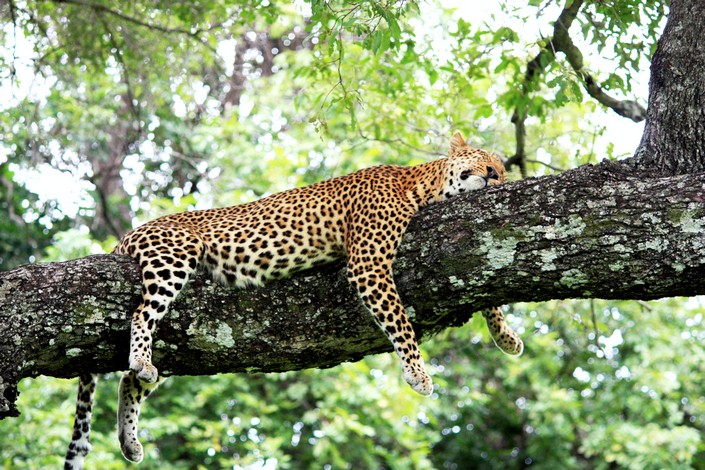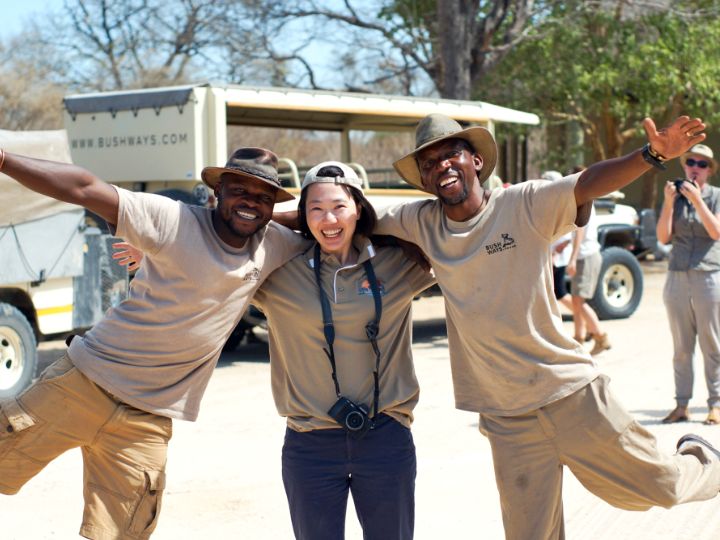What you want to know about a safari in Africa
When it comes to Africa, often the questions that you least expect people to ask, somehow come up. Questions range from the more ‘basic’, to extreme cases such as ‘Do wild animals roam the streets?’.There is this preconceived idea that Africa has wild animals roaming the streets and that we all live in huts!
Luckily, people have wisened up to the fact that Africa is, in fact, very built up (especially when referring to the big cities); and that wildlife are confined to national parks. Now, the most popular questions are that safety, and whether or not travellers will have an enjoyable, thrilling and adventurous stay.
Tourists want to ensure their money is well spent – especially as Africa is one of the most expensive continents to visit in the world. However, there are many affordable travel options; giving everyone the opportunity to visit this magical place.
When is the best time to go on safari in Africa?
This is a difficult question to answer as we all have personal reasons to what we prefer but Africa is beautiful all year round and each season has its own highlights. When planning a trip to Africa, find out what the highlights are to that specific season. Important factors are weather temperature, seasonal events, best times to view wildlife and when migrations takes place. Summer for beaches and mountain climbing is a popular time but is more expensive.
The cooler months especially in winter which is South Africa’s off season is less expensive and often you will find reduced rates, less crowds and the benefit of getting the chance to be closer to wildlife, experiencing the migration and to see the beautiful green lush landscapes. Spring is a lovely time to see the wildflowers of Namaqualand and the West Coast Nature reserve in Cape Town.
What should I pack for an African safari?
When packing for a safari, it’s important to dress for comfort and functionality. Wear neutral-colored clothing to blend in with your surroundings, and avoid bright colours that may attract unwanted attention. Pack light, breathable clothing, and don’t forget a hat, sunglasses, and sunscreen for protection against the sun. Comfortable, sturdy shoes are also a must, as you may be walking on uneven terrain. And don’t forget to bring a camera with plenty of memory and batteries!
Read our full and detailed article on what to pack for safari here
Is it safe to go on safari in Africa?
Every country, town and continent in the world has its fair share of crime. It’s most important that you are completely aware and informed of your surroundings and remain observant. The same goes for any African country you may be looking to visit, as each have their own challenges. Crime in Africa is not all negative, here is why:
When you hear from others that Africa has a high level of crime, people are not wrong, this is a fact, Africa does have a high crime rate. Empower yourselves with all the facts when making a decision on where you would like to go, this is important as we often make the incorrect decision based on fear, we need not fear if we surround ourselves with information and knowledge of where we will be going. Serious crimes are usually common in areas where you will find gangsters where poverty is extreme.
These areas are normally found in the suburbs, townships, rural or informal settlements known for violent crimes and gangsters. Poverty, lower income and poorer areas are places that one would find more crime but are usually not close to tourist hotspots.
The safer areas for tourists would be in popular cities, game reserves and national parks and often have security keeping criminals out. You won’t find game reserves and national parks close to the city centres, they are normally on the outskirts or a distance away from the city centre and this makes them incredibly safe and secure. Game reserves, and some parks are privately owned, and therefore access is controlled to guests only.
Crimes such as petty theft, pickpocketing are crimes that are found in the city centres. Crime is low in most tourist destinations in Africa. It’s vital that you safeguard yourself, remain aware of your surroundings, and refrain from flaunting your valuables.
Can I go on a safari and go to the beach?
There are great beaches in South Africa and most of the African countries, so yes, this is possible. The game reserves are open all year round. Make sure that when you are planning to go on a safari and enjoy a beach vacation, that the game reserve is not too far from the coast, so that you reduce your travel time. The best time of year for a combined vacation would be before winter so that you can soak up the sun during the hotter months.
See our tours to paradise, better known as Zanzibar and Mozambique!
Are the animals on safari dangerous?
Being in wildlife and coming into close contact with animals always has that element of danger. We, after all, are entering into their territory and they are unpredictable. Always listen to your guide, who will give you all the information that you need to keep safe at the start of your journey.
You will only put yourself in danger if you deliberately stray from the safety precautions such as exiting the vehicle without permission to do so. Your first safari can sometimes be overwhelming, especially as you witness the might of the wildlife, but if you listen to your guide there is nothing to fear.
Which vaccines are needed for safari?
Should you be travelling to Kenya, Zambia or Tanzania you will need a yellow fever vaccination certificate as these countries are in the yellow fever belt. Have the vaccination a week or two before you leave as these vaccinations can make you feel like you are coming down with the flu. Your travel agency should know which vaccinations would be required for certain African countries.
The most widespread and known issue is malaria. Check with your doctor and ask about malaria prophylactics, pack in an insect repellent, wear correct clothing such as long pants especially at night as this is the time mosquitoes come out. Eastern Cape and Madikwe Game Reserves which both are in South Africa are malaria-free reserves.
What animals will I see on safari in Africa?
Africa is home to a vast array of wildlife, including the Big Five (lion, leopard, elephant, buffalo, and rhino), as well as zebras, giraffes, hippos, crocodiles, and countless bird species. The specific animals you’ll see on safari will depend on the destination you choose and the time of year you visit.
What is a typical day on safari like?
A typical day on safari usually involves an early morning game drive, followed by breakfast back at camp. Midday is usually free time for relaxing, with lunch and some downtime. In the afternoon, there’s another game drive or guided walk, followed by dinner back at camp. Bedtime is usually early, as you’ll need to be up before dawn for the next day’s game drive.
Explore the wonders of Africa with us, on one of our captivating tours!






0 Comments